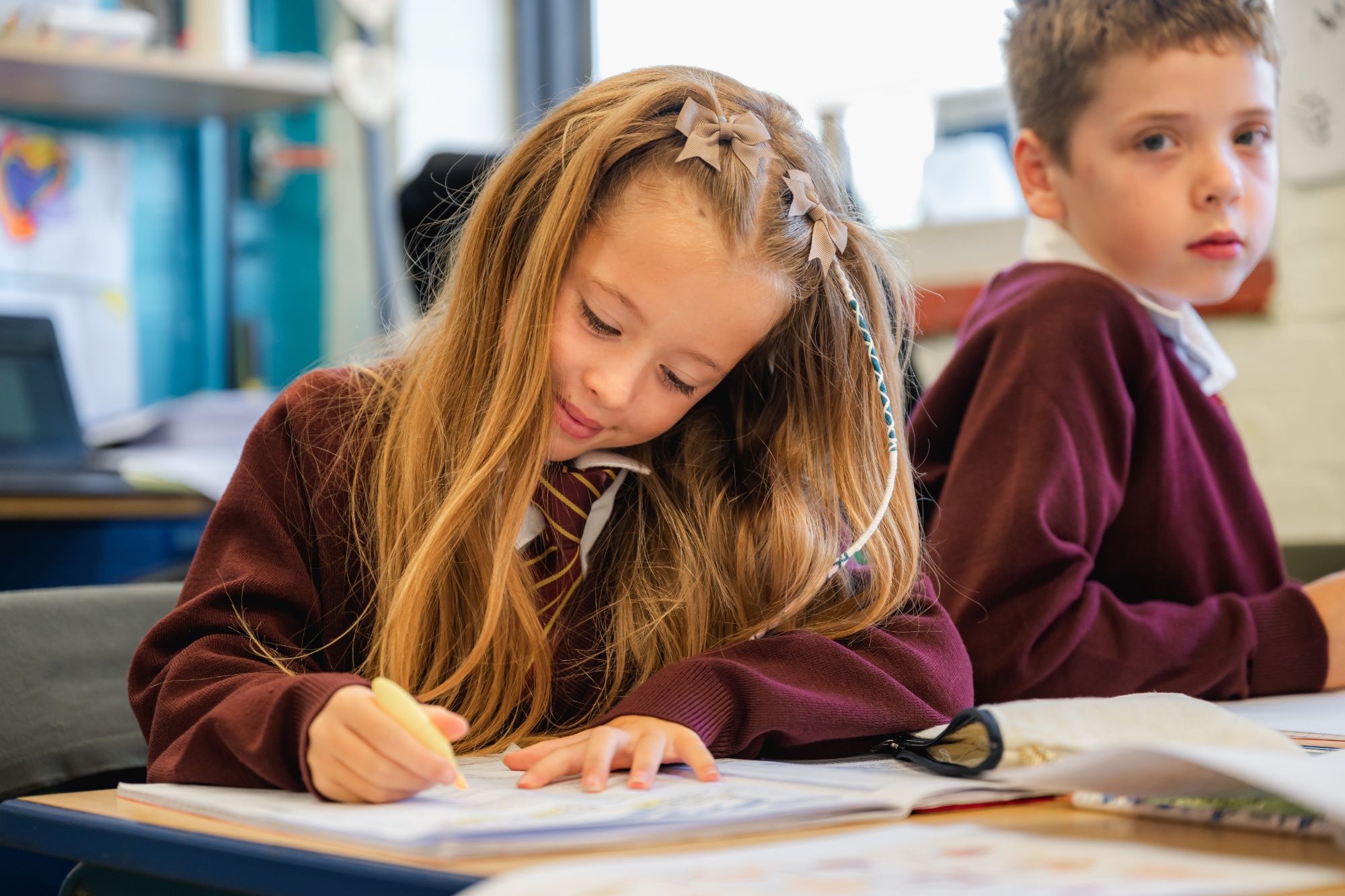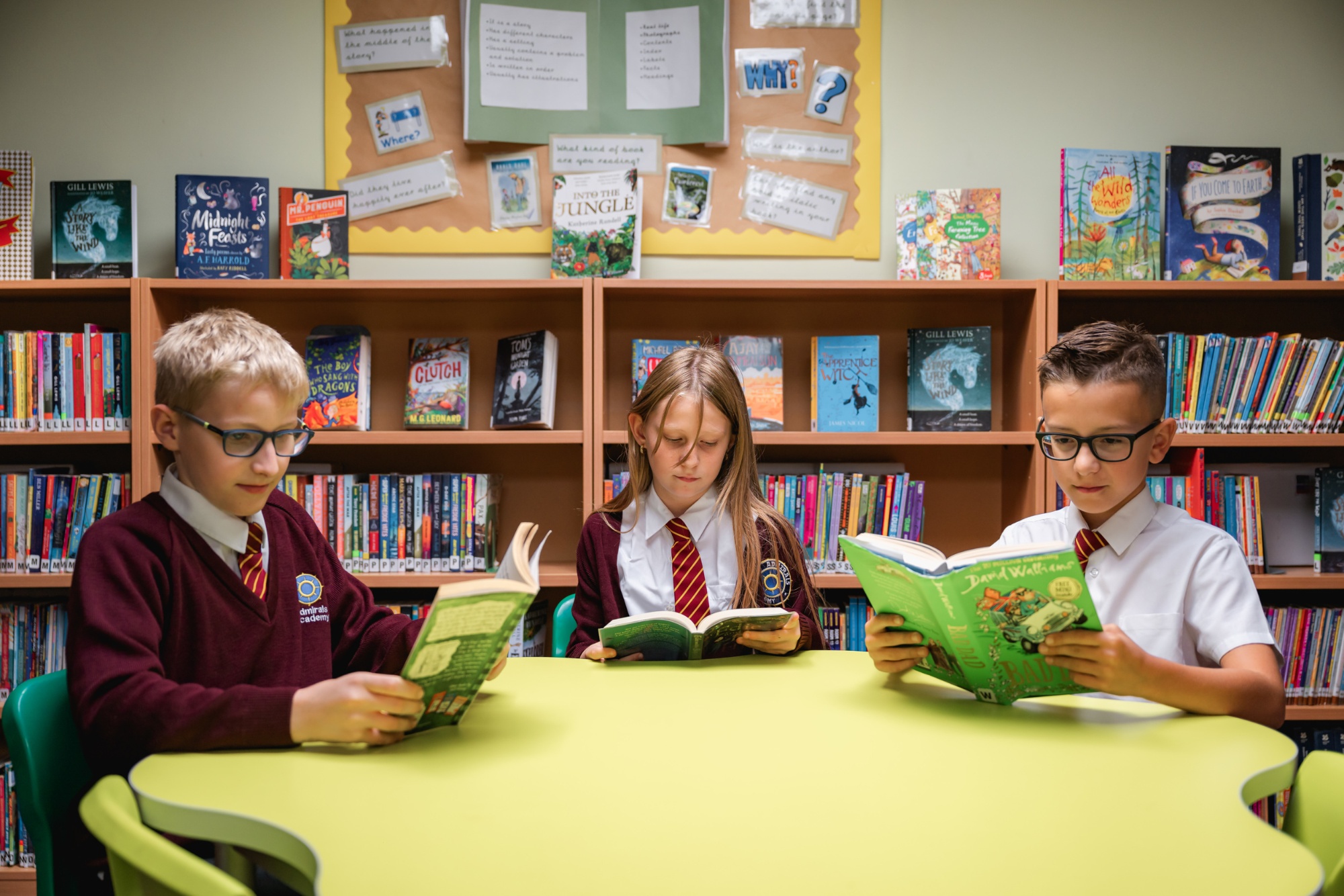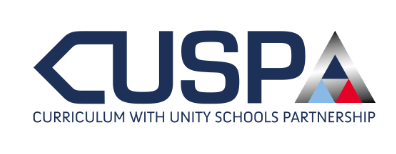English Intent and Implementation
Intent
-
We aim for all children at Raleigh Infant Academy and Admirals Academy to develop knowledge, understanding and enjoyment of the English language through engaging, creative and carefully crafted lessons.
-
We encourage and foster children’s love for reading and expand their experiences of authors and texts.
-
We enable children to communicate clearly, and to express their thoughts and opinions with an ever-expanding vocabulary both orally and in writing.
-
We aim for all children to be articulate, confident and technically proficient in their mastery of the English language and leave our Academy with a love for literature.
-
We provide an ambitious curriculum that all children enjoy that places emphasis on evidence led research: cognitive load theory, principles of instruction, making vocabulary explicit and ensuring that learning tasks fit together in a well-sequenced structure.

Implementation
At Raleigh Infant and Admiral Academies, our ethos is to focus on using an enriched, knowledge-based curriculum across all subjects, including English.
We implement our curriculum through teaching using CUSP (Curriculum Unity Schools Partnership) which provides high quality lessons for reading and writing.
Reading
For reading every year group will have a range of core texts that will form the depth of study for the academic year. These high-quality texts have been carefully selected and mapped to ensure a breadth of experiences, authors and themes are addressed from year 1 to year 6. The teaching of reading will have a focus on:
-
Summarising
-
Retrieving
-
Inference
-
Vocabulary development
-
Fluency
-
Prediction
-
Comparison
-
Authorial Intent
-
Personal Response
Within the Early Years, reading is primarily taught through daily phonics (using Little Wandle), daily reading groups and whole class story times.
In Key Stage 1, reading is implemented through a fortnightly reading schedule where week one consists of three hour long reading lessons and week 2 being composed of 2 hour long reading lessons. This is further supported by the teaching of phonics and whole class story times.
Reading in Key Stage 2 is taught over four hourly sessions a week. These sessions consist of hearing and reading high quality texts from our CUSP literature spines and accompanying extracts. Key Stage 2 pupils will focus on a reading skill and apply this to the core and supporting text (as identified in the literature spine). Pupils are provided with a clear worked example before applying this independently. Planning for these hour reading sessions are taking from the CUSP website and are adapted or annotated for individual classes.
Individual Readers
Throughout our academy we use Collins Big Cat Books which provide each pupil with the correct level of reading book considering the fluency level and phonological understanding of each pupil. All year groups have 2 half hour slots, a week, where teachers and support assistants hear individual readers providing assessment opportunity and support. Pupils are also timetabled to visit the school library once a fortnight where they can select their ‘reading for pleasure’ book to read at home. Outside of these timetabled slots, pupils can access the library at breaktimes and after school.
Each classroom has a dedicated reading area which has been designed by the pupils, this area includes reading books that the children have selected as well as displays the weekly ‘Star Reader’.
Reading is assessed in Key Stage 1, through Little Wandle phonics as well as through the Big Cat assessment. In Key Stage 2, further assessment is carried out using PIXL termly testing.

Writing
Writing is delivered through the use of CUSP writing, which is designed to be cohesive, well-sequenced and ambitious. Each unit of the CUSP is supported by a model text, knowledge note and ingredients for success providing clear expectations of the grammatical structures and conventions required for the genre.
Each year group will cover a range of genres, twice in one academic year. Each genre will differ through the context of which pupils are expected to write. Each unit will cover the grammatical structures and conventions for each genre before applying these to their independent writing.
In an individual lesson, there is opportunity to connect prior learning, explicit vocabulary instruction and direct teaching of concepts.
Writing is assessed at the end of each genre, using the genres ‘ingredients for success’ alongside year group assessment frameworks.


